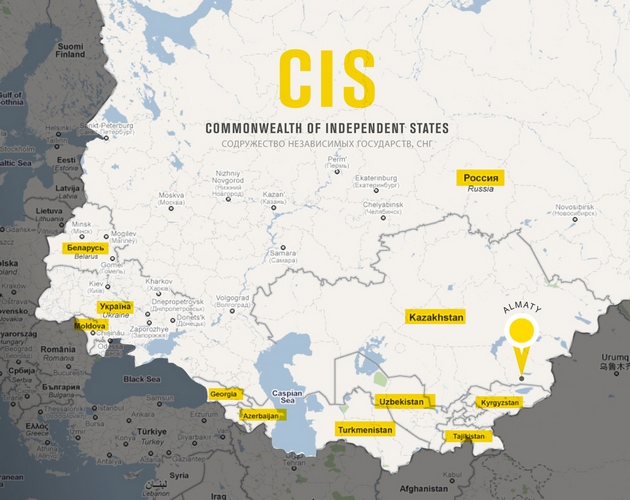Despite the current tensions between Russia and Western countries, the sooner you get your website localized for CEE the better. Crisis, when it’s over, always gives advantage to those well-prepared.
 Our team members have recently published an article in Multilingual. It contains answers to the most common questions we get about CEE localization. Here we present our key ideas from the material.
Our team members have recently published an article in Multilingual. It contains answers to the most common questions we get about CEE localization. Here we present our key ideas from the material.
Stage 1. Choosing Languages
Which language do you choose for localization in Central and Eastern European countries? Most of these states have bilingual population who speak national languages along with Russian.
In Kazakhstan, for instance, most people can speak Russian and the official language is Kazakh. The best way to cover the region is to localize into both languages. However, offline business runners should take into account the nature of their industry. Some industries are heavily regulated and localization into the official language – Kazakh in this case – is required.
Ukraine is another good example. Here Russian is not an official language while the majority of Internet users (over 15 million) use it. More Ukrainians choose Ukrainian versions of websites or software if such option is available. So, a number of facts indicate that it would be reasonable to localize into both languages.
Google-Translate?
Despite of all its benefits, Google Translate should not be used for machine translation for CEE countries, especially into Cyrillic languages. Due to their complicated grammar you’ll get a poor quality content as a result. This can harm you rankings made by search engines such as Google or Yandex. The latter is much stricter when it comes to content quality. It is important because it’s much more popular in Russia than Google.
Passive Localization for CEE Users
If you don’t plan to enter the market soon, do you need CEE localization? In this case you should remember that the more language versions your website has, the more customers have opportunity to recognize your brand. Users become aware that you are operating in all those markets, and it is a positive sign to them.
Amount of your potential clients grows along with your visibility. Basic search engines parameters include equivalence of the query language to the website language. Thus you can benefit from increased brand awareness and visibility to potential customers. Therefore, considering Russian localization certainly should be taken into account, as Russian is one of the ten most spoken languages of the world.

More Things to Keep in Mind
From our experience we know that some manufacturers do not enter Russian market because they fear to have communication issues with their new Russian-speaking customers. However, Russian market is a new opportunity, and eradicating communication gap is just another working solution. It is where translation vendors can help, for example by translating e-mails. If you want assess a request quickly, even Google Translate can prove useful.
Successful companies tend to manage translations of their products by themselves or via multilingual vendors. They don’t trust translation to their dealers or local partners as poor outcome would hurt the brand, and customer experience might be negative. This was the case with the post-Soviet countries. At some point they became a new huge market, and manufacturers were not prepared to communicate with their new customers in their own language. The necessary translations of new equipment manuals were done randomly and not professionally, resulting in major mistakes. This caused loss of potential profits.
Now we are observing a new trend when many companies choose for localization purposes smaller local vendors in the market they plan to enter. Direct communication to them adds to transparency and reduces time to market.
This article is a brief version of our extensive material for Multilingual, a popular magazine about language services. If you want to learn more about localization for CIS, read the full version of the article, or contact us directly for a free adivce.



